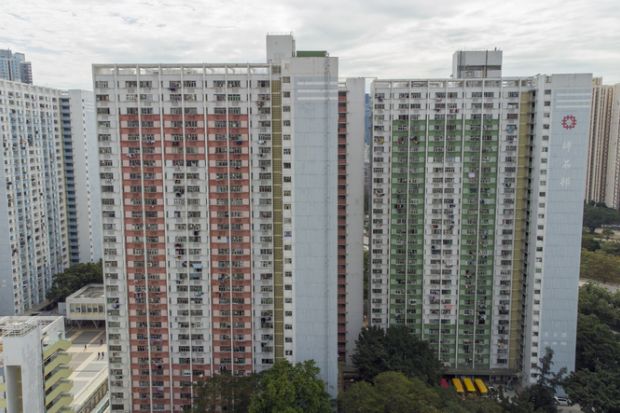A lack of affordable accommodation could undermine Hong Kong’s goal of revitalising its status as an international education hub, analysts have warned.
With the number of students from outside the region set to surge, Hong Kong’s universities are unlikely to be able to meet demand for accommodation, according to a new report from real estate services firm JLL Hong Kong.
Hong Kong’s universities are keen to recruit more students from beyond mainland China, where most non-local students currently come from. Last year the government also eased regulations to allow public universities to admit twice as many non-local undergraduates, a move expected to result in a surge in admission numbers.
Analysts from JLL predict that enrolment in post-secondary education will reach 92,000 by the 2027-28 academic year, 46 per cent higher than 2022-23 levels. In addition to non-local recruitment, this growth will be fuelled by a weak job market, with more recent graduates pursuing postgraduate education; expanded scholarship schemes as part of China’s Belt and Road initiative; and the relaxation of work restrictions, a policy expected to attract more international students.
But these students are likely to find themselves struggling to secure accommodation because the development of suitable housing is failing to keep up. According to the report, there is already a “stark shortage” of beds in university hostels, the preferred accommodation option for most students.
Hong Kong appears “unlikely to meet the overall student accommodation demand in the foreseeable future”, said Cathie Chung, senior director of research at JLL. “It is primarily due to the lengthy construction cycle required for purpose-built hostels, as well as the difficulty in finding suitable sites for new university hostel developments.”
If not addressed, analysts warn in the report, “the scarcity of reasonably priced good quality accommodation options could dissuade international students from selecting Hong Kong as their preferred destination for higher education”.
And while the government is investing in the development of student housing, progress has been “modest”, according to JLL. Universities have been trialling ways to address the shortage themselves, including partnering with private providers, while last year Hong Kong Metropolitan University announced plans to purchase hotels to help accommodate more students from mainland China.
These shortages mean that securing suitable housing can be stressful for students. While accommodation is guaranteed for non-local students in their first year, they face a “re-evaluation” at the end of the year to determine who is eligible to stay in university accommodation, with contributions to hall activities often used as key assessment criteria.
“Renewing accommodation thus becomes an important consideration for students alongside their academic pursuits,” said Huan Li, an assistant professor at Xi’an Jiaotong-Liverpool University and former doctoral student in Hong Kong. “Students with accommodation may feel anxious about renewal and may dedicate more time to extracurricular activities, sometimes reluctantly.”
But Dr Li noted that overseas students were less likely to be deterred by shortages than their non-local Chinese counterparts, because they generally rely less on university accommodation.
“Despite the shortage of accommodation, studying in Hong Kong is still appealing for international students,” he said.
Register to continue
Why register?
- Registration is free and only takes a moment
- Once registered, you can read 3 articles a month
- Sign up for our newsletter
Subscribe
Or subscribe for unlimited access to:
- Unlimited access to news, views, insights & reviews
- Digital editions
- Digital access to THE’s university and college rankings analysis
Already registered or a current subscriber?








